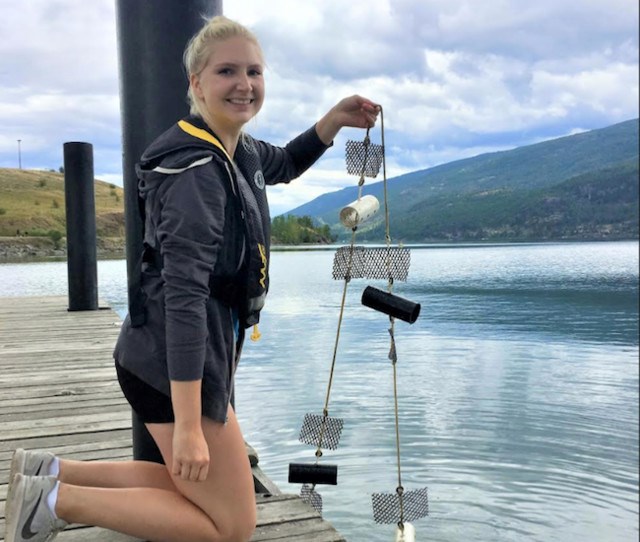A project is being launched for citizens to help monitor for invasive mussels in Okanagan area lakes.
The Okanagan and Similkameen Invasive Species Society (OASISS) is seeking community members who own private docks on Kalamalka, Wood, Okanagan, Skaha and Osoyoos lakes to participate in monitoring for the non-native zebra and quagga mussels.
This project is the first of its kind in the province, and will allow community members to be more actively involved in protecting Okanagan lakes from the invasive mussel threat.
Participants will be provided with a pair of mussel monitors to be attached to their private docks which they will be required to check every two weeks throughout the summer.
“Our society has been checking for invasive mussels for seven years, however, this initiative will greatly expand our efforts to regions of the lakes that were previously inaccessible,” said Lisa Scott, executive director of OASISS. “Not only will we be able to improve the quantity of our data, but we will also be able to involve the community in an environmental cause that many feel passionate about.”
Invasive mussels were introduced from Eastern Europe and Western Russia to the Great Lakes Region in the 1980s, and since then have spread into lakes around North America, primarily by contaminated watercraft.
As of 2016, the mussels were found in Montana; however, B.C., Alberta, Saskatchewan, Oregon, Idaho and Washington are still believed to be mussel-free.
The citizen project is being funded in part by the Okanagan Basin Water Board (OBWB) and run in conjunction with its Don’t Move A Mussel initiative.
The society has also received a grant from the Habitat Conservation Trust Foundation to support the monitoring of the five Okanagan lakes for invasive mussels through both water sampling and monitoring stations.
“The OBWB is extremely concerned about the possibility of zebra and quagga mussels reaching our lakes,” said Anna Warwick, executive director of the water board. “Once established in a lake, invasive mussels harm ecosystems and impact water supplies. The lakes in the Okanagan Basin are especially vulnerable to these impacts.”
Zebra and quagga mussels are considered to be an environmental disaster, costing millions of dollars to each year. In regions where they are already established, invasive mussels damage sensitive ecosystems, clog water intake pipes and water infrastructure, reduce water quality and impact tourism and the local economy.
To register for the project, contact Scott by calling 250-490-7572.
— Darren Handschuh, Castanet

.png;w=120;h=80;mode=crop)

